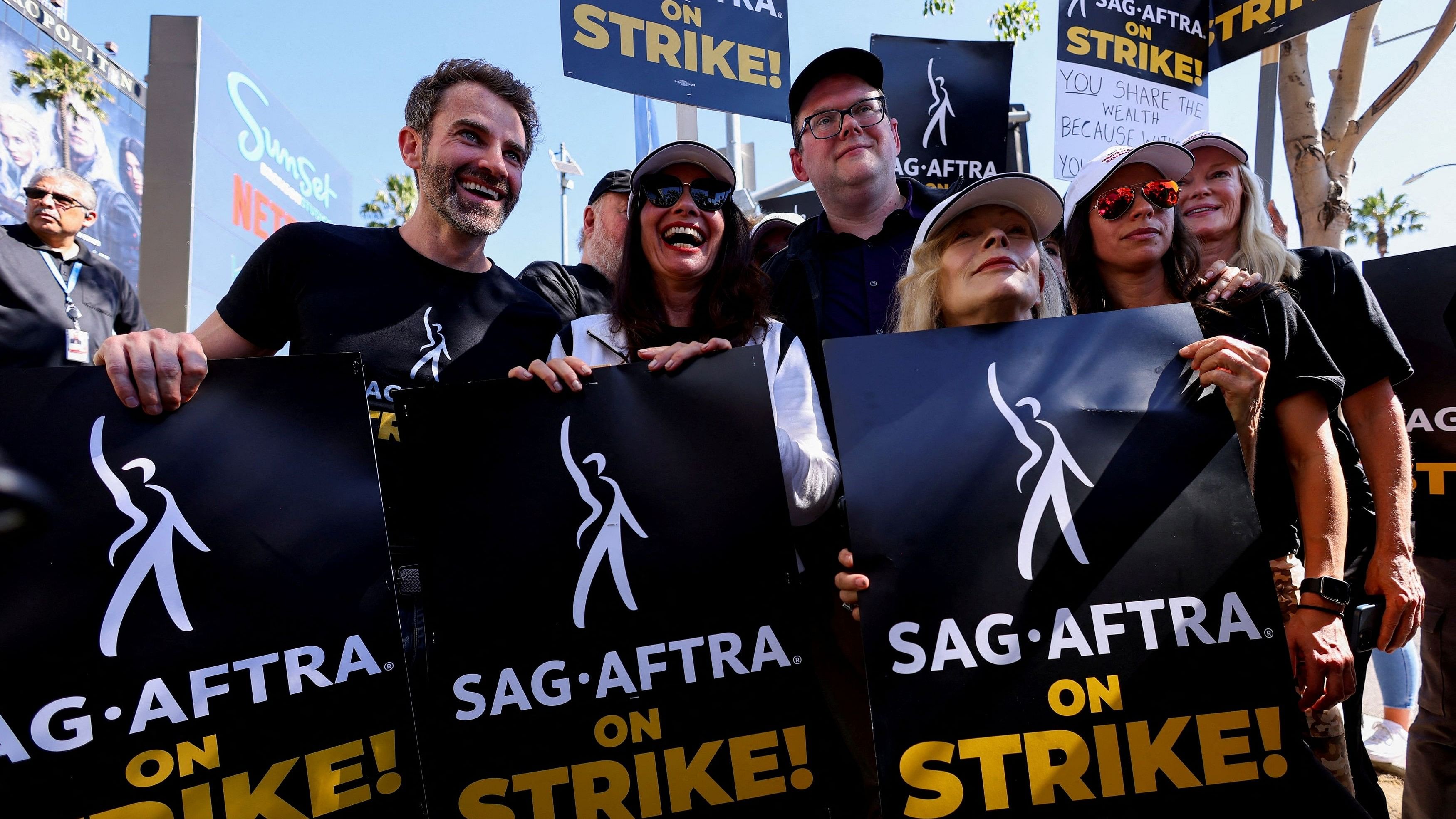
SAG-AFTRA union President Fran Drescher and Duncan Crabtree-Ireland, SAG-AFTRA National Executive Director and Chief Negotiator, demonstrate as SAG-AFTRA actors join the Writers Guild of America in a strike against the Hollywood studios, on the picket like outside of Netflix offices in Los Angeles, California, July 14, 2023.
Credit: Reuters Photo
Los Angeles: One of the longest labor crises in Hollywood history is finally coming to an end.
The Screen Actors Guild-American Federation of Television and Radio Artists, the union representing tens of thousands of actors, reached a tentative deal for a new contract with entertainment companies Wednesday, clearing the way for the $134 billion American movie and television business to swing back into motion.
Hollywood’s assembly lines have been at a near-standstill since May because of a pair of strikes by writers and actors, resulting in financial pain for studios and for many of the 2 million Americans — makeup artists, set builders, location scouts, chauffeurs, casting directors — who work in jobs directly or indirectly related to making TV shows and films.
Upset about streaming service pay and fearful of fast-developing artificial intelligence technology, actors joined screenwriters on picket lines in July. The writers had walked out in May over similar concerns. It was the first time since 1960 that actors and writers were both on strike.
The Writers Guild of America, which represents 11,500 screenwriters, reached a tentative agreement with studios Sept. 24 and ended its 148-day strike Sept. 27. In the coming days, SAG-AFTRA members will vote on whether to accept their union’s deal, which includes hefty gains like increases in compensation for streaming shows and films; better health care funding; concessions from studios on self-taped auditions; and guarantees that studios will not use AI to create digital replicas of their likenesses without payment or approval.
At 118 days, it was the longest movie and television strike in the union’s 90-year history. SAG-AFTRA said in a statement that its negotiating committee had voted unanimously to approve the tentative deal, which will proceed to the union’s national board Friday for “review and consideration.”
The Alliance of Motion Picture and Television Producers, which bargains on behalf of entertainment companies, said in a statement that the tentative agreement “represents a new paradigm,” giving SAG-AFTRA “the biggest contract-on-contract gains in the history of the union.”
For an industry upended by the streaming revolution, which the pandemic sped up, the tentative accord takes a meaningful step toward stabilization. About $10 billion in TV and film production has been on hold, according to ProdPro, a production tracking service. That amounts to 176 shows and films.
The fallout has been significant, both inside and outside the industry. California’s economy alone has lost more than $5 billion, according to Gov. Gavin Newsom.